
by Herdís Þorgeirsdóttir | 19.10.2018 | Almanak
In an Opinion adopted today, the Council of Europe’s Venice Commission expresses concern that many draft amendments to the Criminal Code and the Criminal Procedure Code in Romania seriously weaken the effectiveness of its criminal justice system to fight corruption offences, violent crimes and organised criminality.
The Venice Commission recommends that the Romanian authorities conduct an overall re-assessment of the amendments in both codes through a comprehensive and effective consultation process in order to come up with a solid and coherent legislative proposal benefiting from a broad support within the Romanian society and taking fully into account the applicable standards, and to follow the guidance of the Constitutional Court. On 12 October the Constitutional Court of Romania established that over 60 articles of the draft law amending the Criminal Law Procedure were unconstitutional and is expected to examine the constitutionality of the draft amendments to the Criminal Code later this month.
The Commission also adopted with some amendments the preliminary opinion issued in July on three drafts laws amending existing legislation on the statute of judges and prosecutors, judicial organisation and the Superior Council of Magistracy. This opinion criticises that these laws would adversely affect the efficiency, quality and independence of the judiciary, with negative consequences for the fight against corruption. The three laws have already been promulgated and entered into force.
Read full press release: Proposed reform of criminal justice legislation in Romania weakens the fight against corruption and other serious crimes according to Venice Commission


by Herdís Þorgeirsdóttir | 2.10.2018 | Almanak
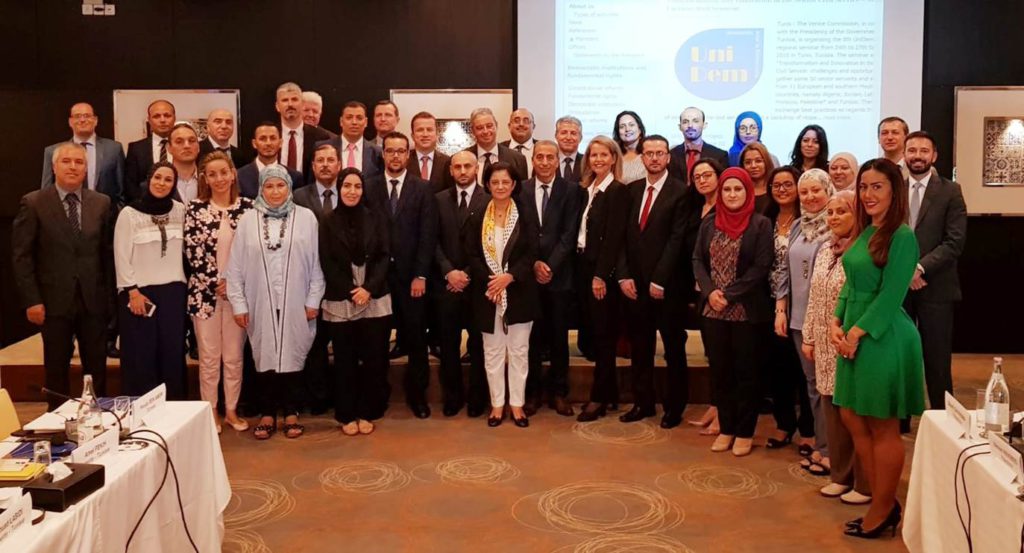 Á kennslu-ráðstefnu í Túnis hinn 24. september var ég með fyrirlestur um réttarríkið og stjórnsýsluna en ráðstefnuna sátu einmitt fulltrúar stjórnsýslunnar í Túnis. Ein helsta orsök byltingarinnar ,,Arabavorið” svokallaða sem hófst í Túnis í janúar 2011 og breiddist fljótlega til nágrannaríkjanna spratt upp sem mikið andsvar við spillingu í þessum ríkjum – ekki síst í opinbera geiranum.
Á kennslu-ráðstefnu í Túnis hinn 24. september var ég með fyrirlestur um réttarríkið og stjórnsýsluna en ráðstefnuna sátu einmitt fulltrúar stjórnsýslunnar í Túnis. Ein helsta orsök byltingarinnar ,,Arabavorið” svokallaða sem hófst í Túnis í janúar 2011 og breiddist fljótlega til nágrannaríkjanna spratt upp sem mikið andsvar við spillingu í þessum ríkjum – ekki síst í opinbera geiranum.
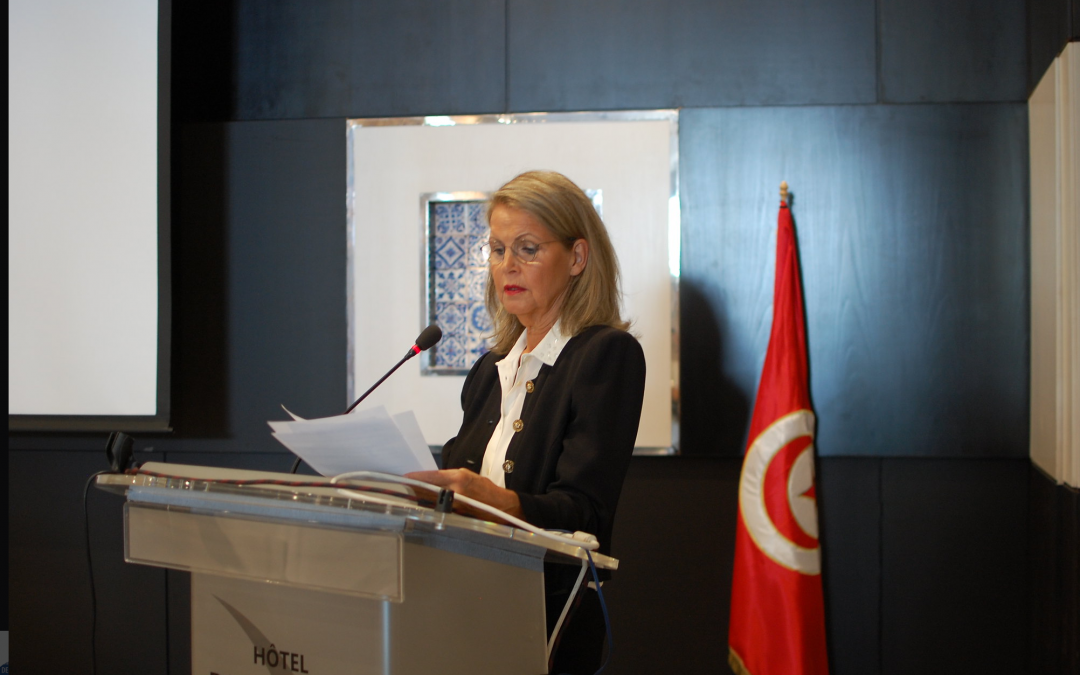
by Herdís Þorgeirsdóttir | 27.09.2018 | Almanak
Umbætur og umbylting í stjórnsýslunni var inntak þriggja daga námskeiðs (24.-27. sept 2018) sem haldið var í Túnis fyrir opinbera starfsmenn í ríkjum Norður Afríku og Arabaheiminum – svokölluð UniDem námskeið sem Feneyjanefndin stendur m.a. fyrir. Hér er dagskráin.
Hér má sjá myndir.https://www.flickr.com/photos/148838160@N03/sets/72157700511389331/with/30173363287/
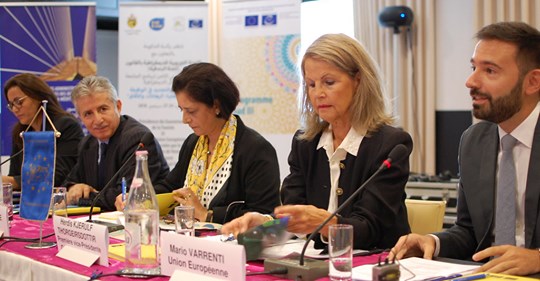
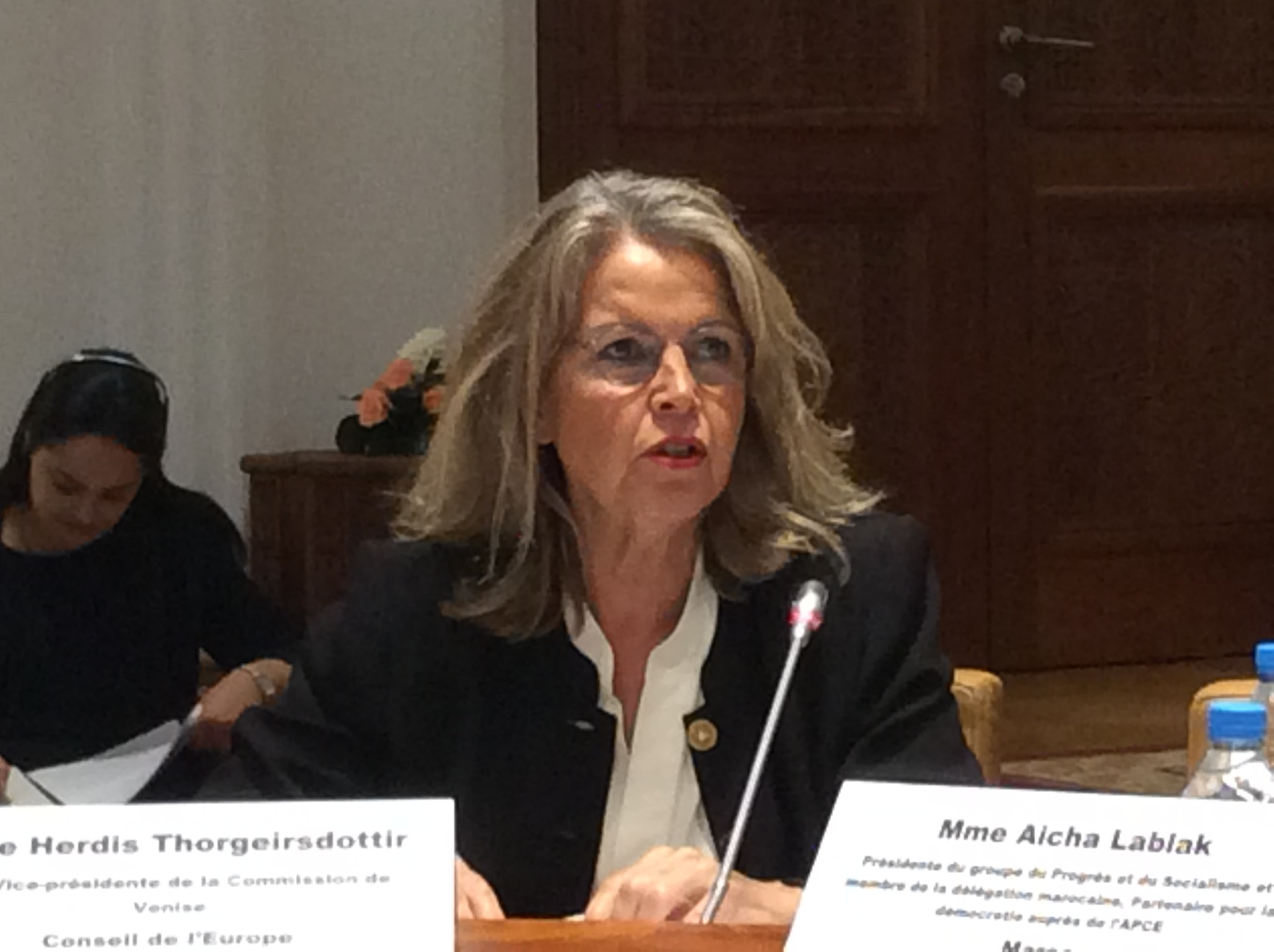
by Herdís Þorgeirsdóttir | 10.07.2018 | Almanak
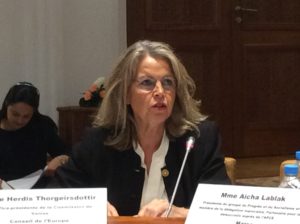 Á ráðstefnu sem Evrópuráðið (Council of Europe) og þjóðþing konungdæmisins í Marokkó stóðu fyrir hinn 5. júlí sl. (Regional Conference on Women in Politics: How to progress towards equality?) var Herdís Kjerulf Þorgeirsdóttir fyrsti varaforseti Feneyjanefndar með framsögu um álit nefndarinnar á sviði jafnréttis og þátttöku kvenna í stjórnmálum. Hér má sá ræðu sem hún flutti við lok ráðstefnunnar:
Á ráðstefnu sem Evrópuráðið (Council of Europe) og þjóðþing konungdæmisins í Marokkó stóðu fyrir hinn 5. júlí sl. (Regional Conference on Women in Politics: How to progress towards equality?) var Herdís Kjerulf Þorgeirsdóttir fyrsti varaforseti Feneyjanefndar með framsögu um álit nefndarinnar á sviði jafnréttis og þátttöku kvenna í stjórnmálum. Hér má sá ræðu sem hún flutti við lok ráðstefnunnar:
Thank you Madame Kovács, Chairperson of the Committee on Equality and Non-Discrimination of the Parliamentary Assembly of the Council of Europe and Mr Allal Amraoui, Member of the Moroccan Delegation to the Parliamentary Assembly – for giving me the floor in this closing session to add a few words concerning the work of the Venice Commission – the European Commission for Democracy through Law – on gender equality and women’s participation in elections.
Ladies and gentlemen,
On behalf of the Venice Commission I would like to thank again our hosts, the Parliament of Morocco, for providing us with this impressive location and you all, dear participants, for an exceptionally interesting day of discussions and for your truly inspiring comments. An event like this will undoubtedly help shape the mindset of legislators in this region and elsewhere towards empowering women. As was mentioned by one of the last speakers, Mr. Benzzaouz, the times have changed so today nobody dears publicly to belittle women’s request for their rights. This is spot-on. As I mentioned in my presentation earlier today it seems incredible now but in 1959 – in the heart of Europe – in Switzerland a referendum was held on women’s suffrage and the majority of men, 67%, voted against it – an outcome unthinkable today and Swiss women did not gain the right to vote until 1971.
Values change over time. In retrospect views have indeed incrementally changed, yet in a profound way. Looking back to the cautious wording of the Venice Commission’s Code of Good Practice in Electoral Matters from 2002, which stated: « Legal rules requiring a minimum percentage of persons of each gender among candidates should not be considered as contrary to the principle of equal suffrage if they have a constitutional basis » – there is a markedly much firmer tone in the Venice Commission’s joint Guidelines on Political Party Regulation – with the / OSCE/ODIHR in 2010. The Guidelines stress that the prohibition of discrimination is one of the most fundamental principles of current international human rights law and that the small number of women in politics in many states remains a critical issue which undermines the full functioning of democratic processes. The Venice Commission, along with the Committee of Ministers, encourages the Member States of the Council of Europe to increase women’s representation by introducing quotas – pointing to the fact that a number of countries have introduced electoral gender quotas in recent years and that voluntary gender quotas are applied by many others. The adoption of voluntary quotas is in the view of the Venice Commission an exemplary effort in ensuring a party’s commitment to equality and non-discrimination on the part of such parties and should be viewed positively.
Regarding mechanisms to promote the representation of women the Venice Commission persistently emphasizes that in respecting universal and regional instruments designed to ensure equality for women, as well as general principles for non-discrimination, legislation should endeavor to ensure that women are able to participate fully in political parties as a fundamental means for the full enjoyment of their political rights. Furthermore, that « affirmative measures » are not contrary to the principle of equality as long as they are temporary and aim to overcome an existing discrimination.
It is with great pleasure that I thank one of the participants in this conference, who is well acquainted with the work of the Venice Commission, and who approached me earlier today to acknowledge the positive evolution in the work of the Venice Commission in matters concerning electoral law and gender equality – praising the stronger wording in the last decade with regard to affirmative measures, which in return enhanced the value of the opinions in the area of women’s participation in politics – adding also the firm stance of the Venice Commission recently to the important factor of campaign financing – all among the crucial matters that determine the state of democracy and human rights in each society. I have asked for permission to quote the exact words of this distinguished participant in our talk who concluded by saying: « The Venice Commission opinions are probably the most important means to influence political will and behavior of authorities in the Council of Europe Member States. Some states do not listen until the Venice Commission speaks! »
Thank you and may peace be upon you
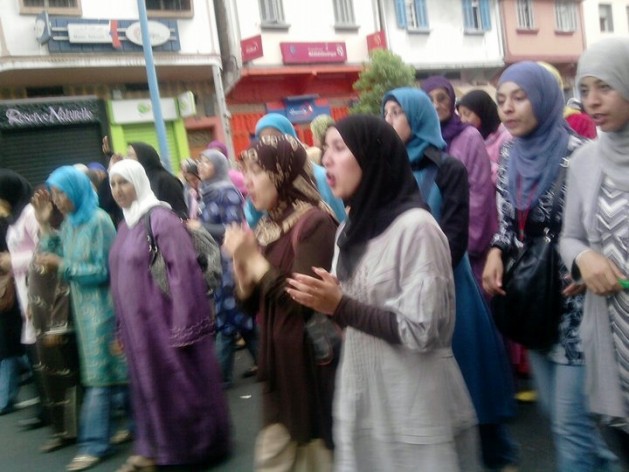
by Herdís Þorgeirsdóttir | 2.07.2018 | Almanak
 Verð með framsögu á ráðstefnu sem haldin verður Rabat í Marokkó á vegum þingmannasamkundu Evrópuráðsins þingsins í boði konungdæmisins í Marokkó um konur í stjórnmálum og hvernig miði í átt til jafnréttis. Ráðstefnan verður haldin hinn 5. júlí og er skipulögð í samvinnu Evrópuráðs og Evrópusambands innan ramma verkefnis sem stefnir að því að tryggja sjálfbæra lýðræðislega stjórnarhætti í ríkjum sunnan við Miðjarðarhaf.
Verð með framsögu á ráðstefnu sem haldin verður Rabat í Marokkó á vegum þingmannasamkundu Evrópuráðsins þingsins í boði konungdæmisins í Marokkó um konur í stjórnmálum og hvernig miði í átt til jafnréttis. Ráðstefnan verður haldin hinn 5. júlí og er skipulögð í samvinnu Evrópuráðs og Evrópusambands innan ramma verkefnis sem stefnir að því að tryggja sjálfbæra lýðræðislega stjórnarhætti í ríkjum sunnan við Miðjarðarhaf.
Sjá frétt á heimasíðu Feneyjanefndar.
———————————-
Rabat –The Venice Commission is invited to participate in the Regional Conference on “Women in politics: how to progress towards equality?” organised by the Parliamentary Assembly of the Council of Europe (PACE) at the invitation of the Parliament of the Kingdom of Morocco.
Ms Herdis Thorgeirsdóttir, the 1st Vice-President of the Commission, will contribute to the following subject: “Mechanisms to promote the representation of women”; Ms Lydie Err, Chair of the Venice Commission Sub-Commission on gender equality will contribute to the session devoted to: “The role of political parties”.
This Conference is organised in the framework of the joint Council of Europe-European Union programme “Ensuring Sustainable Democratic Governance and Human Rights in the Southern Mediterranean”, South Programme III.
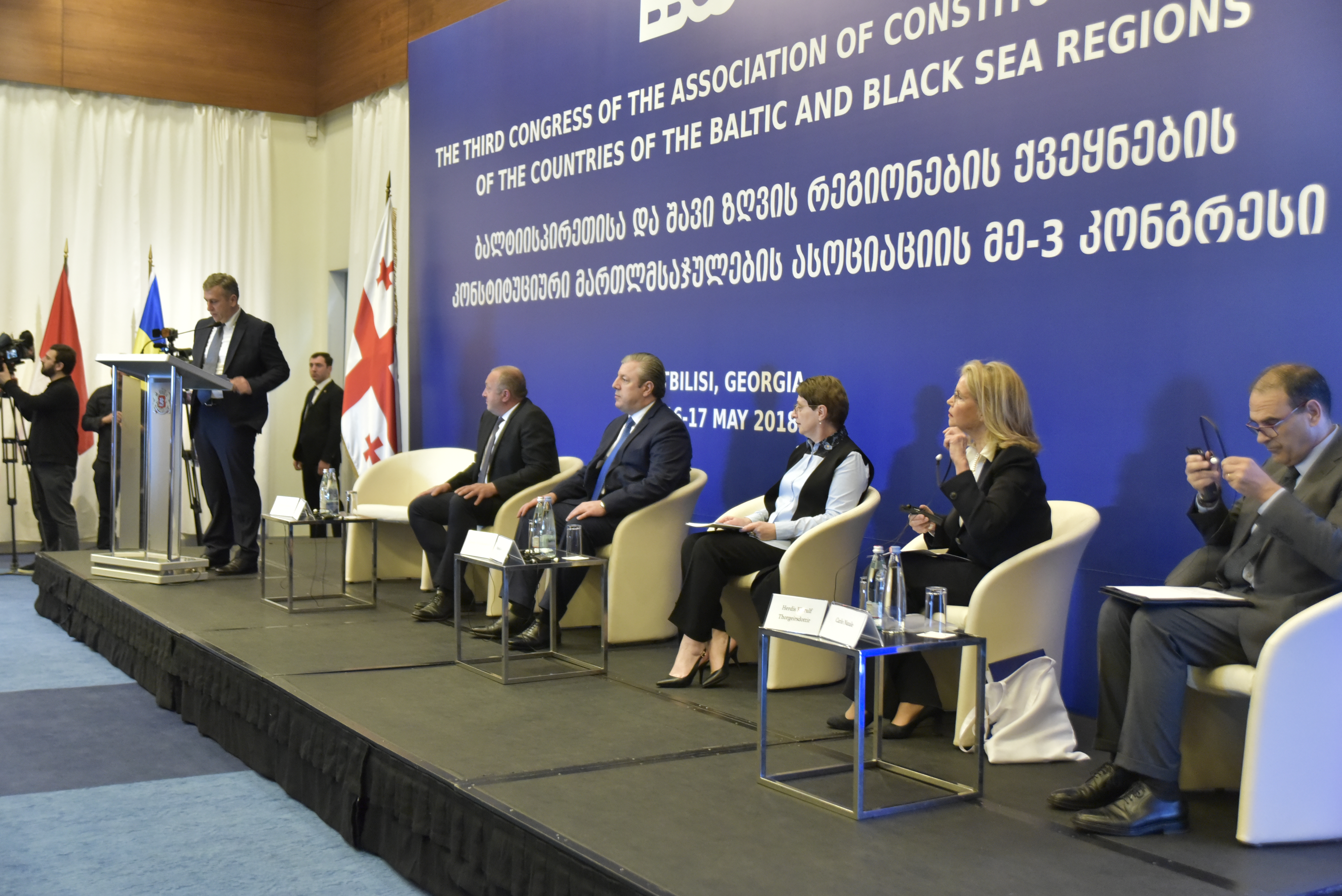
by Herdís Þorgeirsdóttir | 16.05.2018 | Almanak
Flutti framsögu af hálfu Feneyjanefndar á fundi æðstu dómstóla Eystrasaltsríkja og ríkja við Svartahaf (Association of Constitutional Justice of the countries of the Baltic and Black Sea regions – BBCJ) á ráðstefnu 15. maí í Tbilisi í Georgíu, sem gegnir forystu í þessu samstarfi. Samtök þessu voru stofnuð árið 2015 og markmið þeirra er viðhald og vernd réttarrríkis, sjálfstæðra dómsstóla, lýðræðis og mannréttinda. Yfirskrift þessa fundar var: Hlutverk æðstu dómstóla í evrópskum samruna. Opnunarávörp á fundinum fluttu m.a. forseti Georgíu og forsætisráðherra (sjá mynd).
Í BBCJ eiga sæti stjórnlagadómstólar Litháen, Lettlands, Úkraínu, Póllands, Moldóvu og Georgíu.
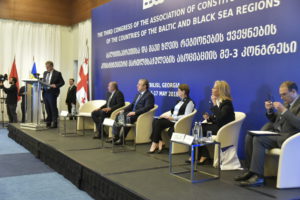
Opnun fundar BBCJ – samtaka æðstu dómstóla Litháen, Lettlands, Póllands, Úkraínu, Georgíu og Moldóvu. Í ræðustól forseti stjórnlagadómstóls Georgíu; næstir honum Forseti Georgíu, forsætisráðherra, forseti hæstaréttar og Herdís Kjerulf Þorgeirsdóttir, fyrsti varaforseti Feneyjanefndar.











